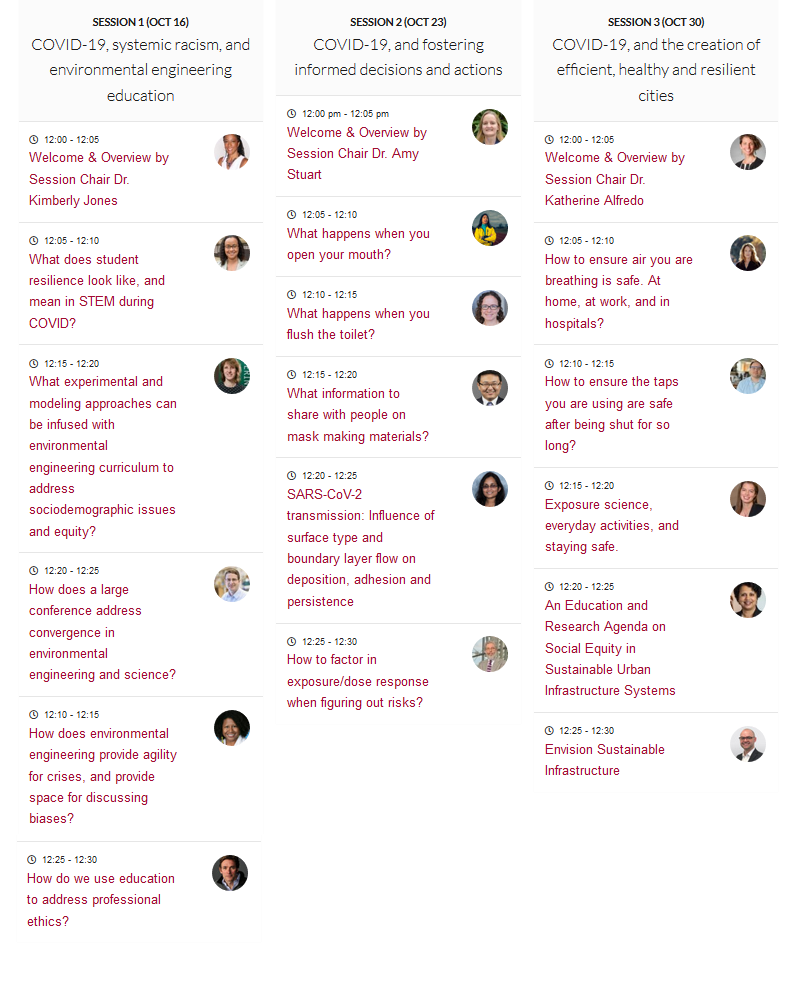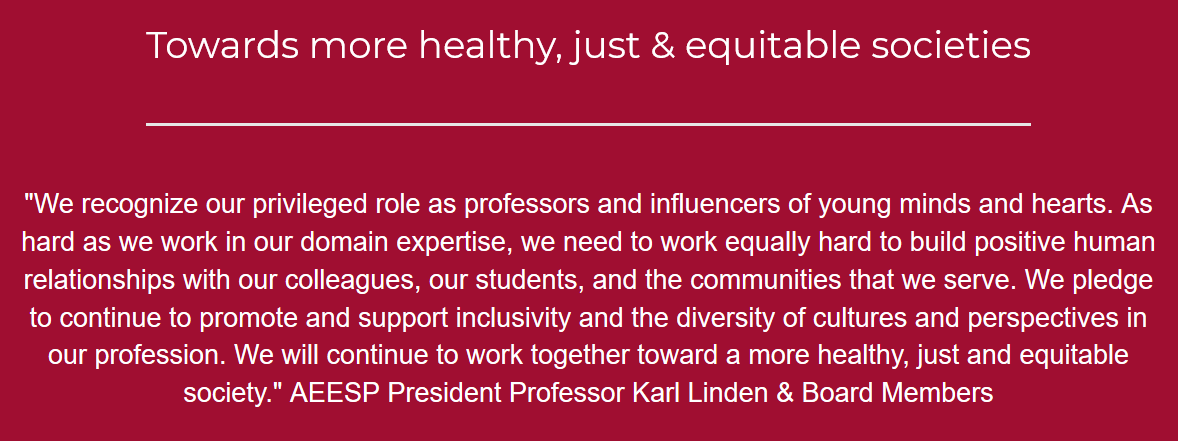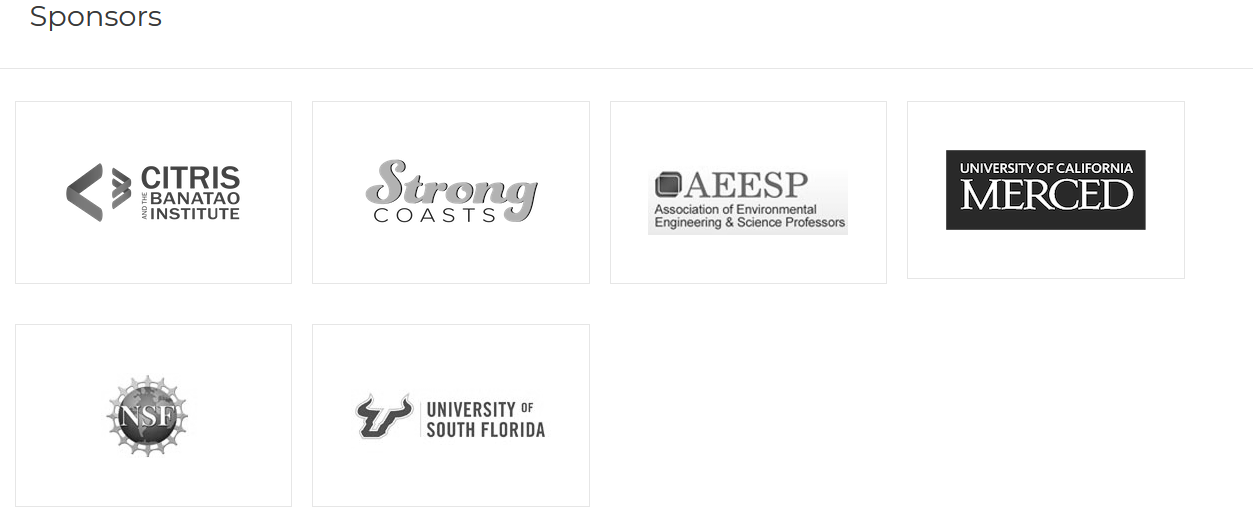A total of 35 professors and experts, mainly from environmental engineering and science fields will present on six different topics related to COVID-19 from October 16 to November 20 as part of a virtual conference “Converging COVID-19, environment, health, and equity.”
USF Department of Civil and Environmental Engineering Professor Maya Trotz is the principal investigator of a National Science Foundation grant funding the conference. Trotz said the project came to life while she and University of California Merced Department of Civil and Environmental Engineering Professor Colleen Naughton, a grant co-principal investigator, were discussing COVID-19-related research other environmental engineering professors published on Twitter.
“Colleen and I are very active on Twitter, and Colleen has for some time been working with the Association of Environmental Engineering and Science Professors (AEESP) to think of how to share resources that faculty could use as we teach about COVID-19,” Trotz said. “Simultaneously, I had introduced a wicked problem as a group project in my undergraduate lab class that allowed students to explore COVID-19 and environmental engineering intersections.”
Naughton said she hopes the conference will break down the silos that exist between the different specialties of environmental engineering and science and lead to more collaborations.
“We’re trying to bring these different researchers together who might go to their own conferences on air, water or wastewater and see that there’s interesting connections between their field and other fields that could lead to new research questions, technologies and innovations,” Naughton said.
Professors and experts from universities and organizations across the country will give presentations during the conference via live Zoom webinars and YouTube livestreams, accessible to those who have registered for the free conference. Presentations cover a variety of issues related to COVID-19 and its effects, ranging from “How to ensure the taps you are using are safe after being shut for so long?” to “Off-grid FEWS systems for remote Navajo communities during a pandemic.”

See all of the conference’s sessions at: https://aeespconvergingcovid19.org/?page_id=73
Trotz said the conference aligns with the five grand challenges of environmental engineering identified by the National Academies of Sciences Engineering and Medicine, as well as a sixth challenge for educating environmental engineering students and addressing issues of sustainable development and environmental justice.
The conference is thus broken into six themes with regard to COVID-19 — systemic biases and environmental engineering education, fostering informed decisions and actions, the creation of efficient, healthy and resilient cities; sustainably supplying food, water, and energy; designing a future without pollution and waste; and climate change mitigation, and adaptation.
“What we hope to do with the conference is show how that last challenge intersects with the five themes that more align with what we think of for environmental engineering especially,” Trotz said. “I think our field is one of the engineering fields that does this a lot more than others, and we hope to showcase that. This work is important because it affects your everyday health and how we deal with this virus.”
The conference is also supported by the Association of Environmental Engineering & Science Professors (AEESP), which issued a statement after the murder of Minneapolis resident George Floyd.
"In it, AEESP said their organization should strive to promote working toward a more healthy, just and equitable society,” Trotz said. “We’ll have session moderators who will show where inequities exist throughout the COVID-19 pandemic, and hopefully we’ll have about 60 minutes of discussion on what we need to do to address these challenges with something that’s innovative.”

Some of the largest inequities that currently exist include the disproportionate amount of deaths and serious illnesses from COVID-19 among people of color. Multiple studies published by the Centers for Disease Control and Prevention as well as John Hopkins Medicine have revealed the presence of this divide in COVID-19 hotspot counties around the U.S.
Trotz, Naughton and other conference organizers — including USF Department of Civil and Environmental Engineering Professors James Mihelcic, Amy Stuart and Katherine Alfredo — also kept equity in mind when deciding how to format the conference. In order to give every attendee a chance to get the most out of each session, speakers’ presentations will be both synchronous and asynchronous.
“Usually conference models of five to seven days straight can be difficult in a regular environment with participants having to fly and go there, but even in a virtual environment, we’ve seen an impact on families with children who won’t be able to tune in, and it’s difficult to pay attention all week,” Naughton said. “We want to keep engagement and try a new conference model while addressing inaccessibility concerns in general.”
In addition to the faculty involved, the team includes undergraduate and graduate students at USF and UC Merced, Mistelle Haughton, Ashley Osler, Brooklyn James and Heather Hopkins — the Research Specialist for the NRT Strong Coast program.
Haughton, a USF civil and environmental engineering student and USF Ambassador, said that as an international student from Jamaica, she's most excited for the sessions focused on water, wastewater and sustainability, as she hopes to contribute to the development of her nation's water resources.
“The conference is an exciting way for undergraduate students to immerse themselves in topics relating to environmental engineering, STEM and COVID-19 research," Haughton said. "It will provide students an opportunity to gain an in-depth understanding of the research currently being conducted by top researchers in our nation."
Conference attendees will also have the opportunity to earn a certificate for their participation in the event by taking quizzes at the end of each session.
“We’d like people watching to come away with some increased competency and understanding of these topics,” Trotz said. “We thought that if we were going to have people for 90 minutes each session, that we as faculty could put together some reasonable questions that would measure that competency and give people a feeling of accomplishment for attending. This is how I felt after participating in USF’s Muma College of Business’s Post Crisis Leadership Certificate.”
Register for “Converging COVID-19, environment, health, and equity” at https://aeespconvergingcovid19.org/?page_id=347, and get access to all six sessions from Friday October 16 through Friday November 20, 2020. Tweets from the conference can also be found tagged with #AEESPConvergingCOVID19.
After the conference, session videos will be uploaded to AEESP’s YouTube channel, where channel moderators will respond to comments on each presentation.

Sponsors of “Converging COVID-19, environment, health, and equity” include the National Science Foundation and community-engaged training and research program STRONG Coasts.